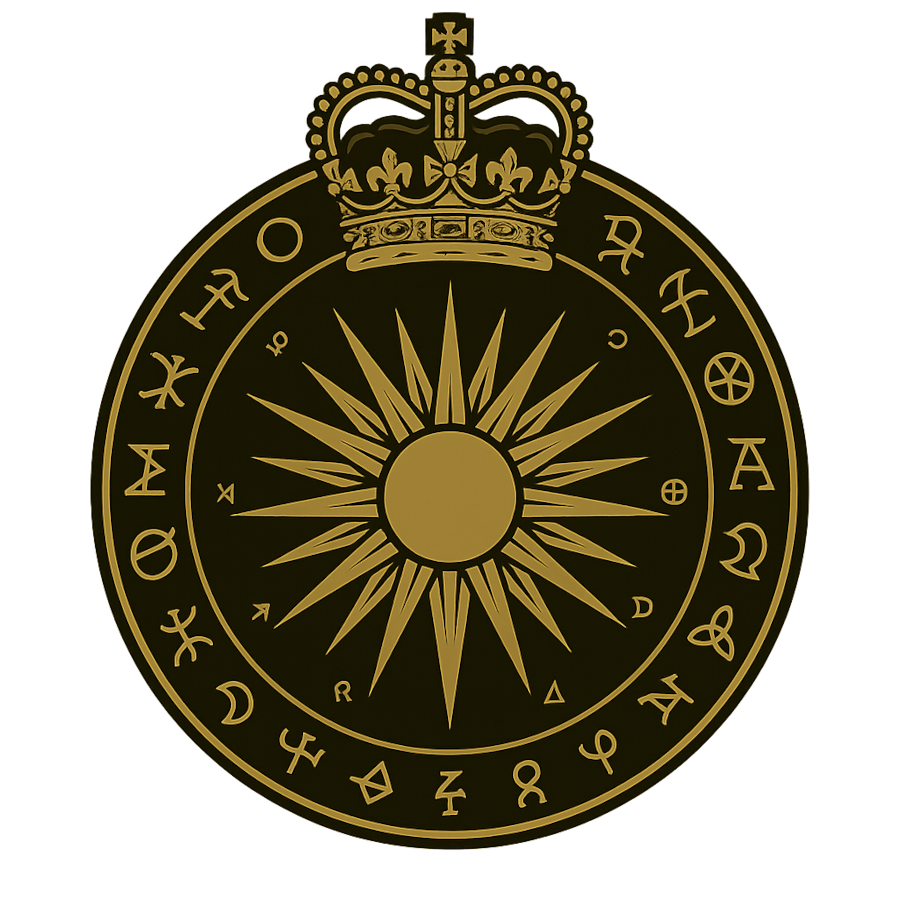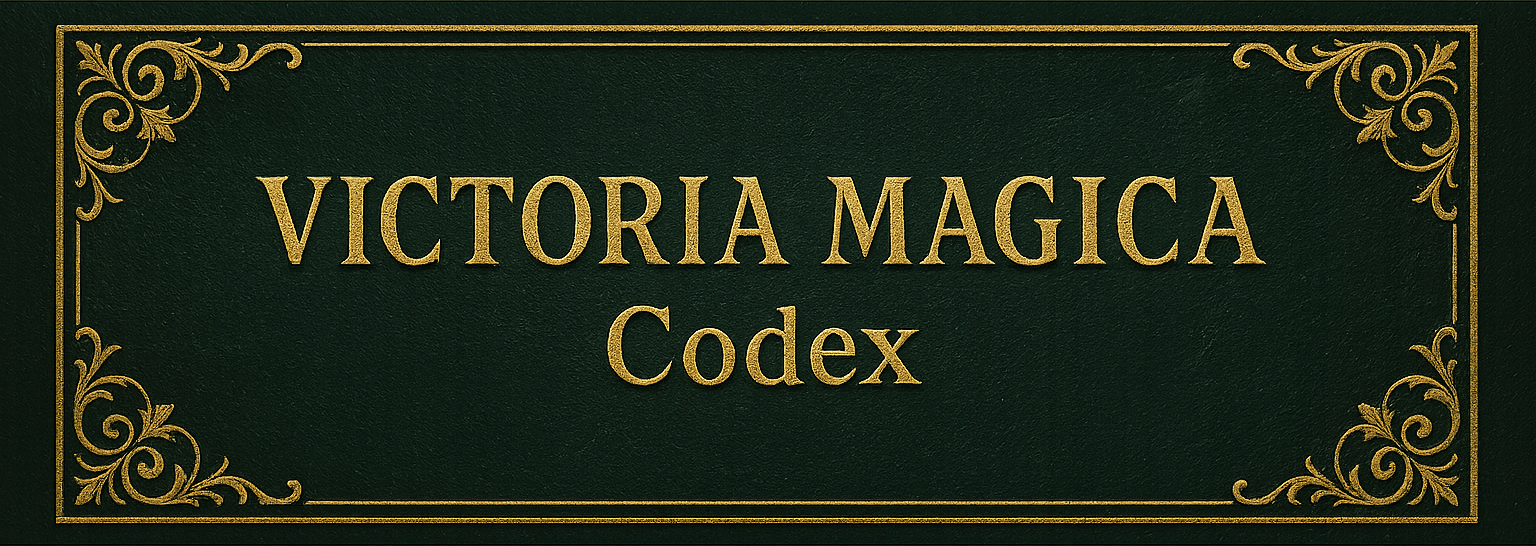Occult Felony Bureau OFB
⚠️ Content Warning
This article may contain mature themes, including homoerotic content, complex power dynamics, sexual encounters with vampires and anthropomorphic beings, as well as other adult material.
Reader discretion is advised.
TABLE OF CONTENTS is in the World Navigation
The Occult Felony Bureau (OFB) is a specialised division of the Metropolitan Police Service, tasked with the investigation and regulation of criminal activity involving arcane forces, spiritual entities, and ritualised offences within Greater London. Established in 1885, the Bureau operates at the intersection of law enforcement and the supernatural, upholding both civil statute and esoteric protocol.
While outwardly part of Scotland Yard, the OFB maintains its own hierarchy, investigative methods, and ceremonial headquarters — the fortified and warded Chapter House. Its officers, unmistakable in their black-and-gold uniforms, are both protectors and reminders of the unseen dangers haunting the modern age.
Feared, respected, and often misunderstood, the OFB remains the Crown’s chief instrument against the unnatural violations of law and life.
Structure
The Occult Felony Bureau (OFB) operates as a semi-autonomous government body, combining arcane investigation, ritual enforcement, and post-mortem jurisprudence. Its structure is a rigid and hierarchical chain of command, rooted equally in occult tradition and bureaucratic necessity. Each title represents not only authority but spiritual rank within the Order’s esoteric framework.
Constabulary Ranks (Field-level operatives)
These are the officers most commonly encountered by the public and the dead alike. They investigate magical crimes, perform minor rituals, and liaise with both mundane police and the departed.
- Occult Constable (OC) – Entry-level officer, under supervision.
- Senior Occult Constable (SOC) – Independent operator with field experience.
- Detecting Occult Constable (DOC) – Specialist investigator of high-magic crimes.
All constabulary ranks report upward to a Crown Constable.
Middle Command (Supervisory & Investigative Command)
This level forms the backbone of district-level command and specialist investigation teams.
- Crown Constable (CC) – Field team leader, oversees junior constables.
- High Crown Constable (HCC) – District-level coordinator of investigations, reports to an Inquisitor.
Inquisitorial Tier (Leadership & Doctrine Enforcement)
Formed from the legacy of the Anglican Inquisition, these ranks govern doctrine, oversee necromantic divisions, and conduct high-profile cases with political sensitivity.
- Inquisitor (INQ) – Senior investigator with access to restricted rites and protocols.
- Senior Inquisitor (SINQ) – District command, oversees Inquisitors and Necromantic Services.
- Tribunal Inquisitor (TRIB) – Member of the Inner Tribunal; handles classified cases, diplomatic liaisons, and internal justice.
Executive Authority (Central Administration)
Symbolic and strategic leadership with ceremonial powers and terrifying discretion.
- Praetor Occulti (PO) – Supreme administrative head of the OFB.
- Grand Auditor (GAU) – Independent internal investigator. Unquestioned. Unwelcome.
Specialised Roles (Departmental Heads)
Independent experts serving under the authority of inquisitorial command, often with access to classified archives and spiritual protocols.
- Sanctifier of Remains (SoR) – Head of Necromantic Forensics.
- Archiv Custodian (ARC) – Keeper of sealed and protected records.
All ranks are ceremonially confirmed under the Order of the Black Sun, with insignia reflecting their radiance: from half-suns for junior officers to full golden discs for the Praetor. Uniforms are prescribed, posture is monitored, and deviations are remembered.
Culture
The culture within the Occult Felony Bureau is a paradoxical blend of public service, ritual solemnity, and social isolation. While many officers — particularly in the Constabulary Ranks and Middle Command — conduct themselves with the same professionalism and restraint expected of any civil servant, they remain subject to persistent public suspicion, especially among the lower classes.
This mistrust stems largely from longstanding societal unease surrounding magic, which is often viewed by working-class communities as unpredictable, elitist, or outright dangerous. The Bureau's highly formalised procedures and quasi-religious rituals only reinforce this divide.
Further exacerbating the situation is the distinctive OFB uniform, whose rigid posture, black-gold styling, and arcane insignia visibly mark the wearer as a practitioner or associate of the occult. As a result, OFB officers often encounter social avoidance, whispered warnings, or open hostility during routine patrols.
Internally, however, the Bureau maintains a disciplined and tradition-bound ethos. Ranks are respected, rituals are observed, and discretion is prized. A sense of shared isolation binds its members — not quite police, not quite priesthood — and many refer to their work, only half-jokingly, as a “sacred burden carried in silence.”
Public Agenda
The Occult Felony Bureau shares the broader mission of the Metropolitan Police Service: to protect life and property, preserve public order, and uphold the law throughout Greater London. However, the Bureau operates with a unique and specialised mandate — to do so in matters where arcane forces, supernatural influence, or ritual interference may be involved.
Its public agenda includes:
- Investigating crimes of magical or spiritual nature
- Preventing the unlawful use of occult practices
- Safeguarding civilians from supernatural harm
- Ensuring that all arcane activity within the city remains within legal and ritual bounds
- Providing expertise and assistance to other police divisions where unexplainable phenomena occur
While the Bureau positions itself as a guardian against unseen threats, its work is often misunderstood by the public. Nevertheless, the OFB remains committed to acting as the Crown’s hand in occult affairs — discreet, disciplined, and, when necessary, ruthlessly efficient.
Assets
The Occult Felony Bureau operates under a dedicated parliamentary budget, allocated independently from that of the Metropolitan Police Service but administratively managed through Scotland Yard. This unique arrangement reflects both the Bureau’s specialised function and the political sensitivity of its operations.
Notable assets include:
- A fully independent headquarters known as The Chapter House, a fortified and warded former hermetic chapter hall in central London
- Access, upon authorised request, to select arcane artefacts held within the Tower of London and the Unseen Archive, a classified subterranean repository beneath Westminster
- A small but essential inventory of ritual tools, enchanted containment devices, and field-issued occult instruments
- Jurisdictional clearance to requisition magical expertise, necromantic services, and Church of England consultants when necessary
Despite these privileges, the Bureau suffers from chronic understaffing, due largely to the scarcity of suitable candidates who meet both legal and arcane criteria. As a result, many operatives remain overextended, and field deployments are often conducted with fewer personnel than advisable — a fact quietly acknowledged but seldom addressed in public records.
History
The Bureau’s roots, however, stretch further back: it was formed by restructuring remnants of the Anglican Inquisition, a covert clerical body tasked with spiritual enforcement and occult suppression since the 17th century. Though disbanded in name by 1744, its personnel, archives, and ritual procedures persisted in secrecy under Crown oversight.
When reconstituted as a civilian authority under the Metropolitan Police, the OFB retained much of this inherited doctrine — including its hierarchical structure, symbolic regalia, and preference for ritualised procedure. Its headquarters, now known as The Chapter House, was once a hermetic lodge and remains heavily warded, both architecturally and metaphysically.
While initially met with scepticism from both the public and other divisions within Scotland Yard, the Bureau proved its necessity during the “Summer of Smoke” in 1887, when coordinated magical sabotage crippled several railway lines and summoned phenomena paralysed parts of the East End. The OFB’s decisive response secured its place within the official policing structure, albeit always at a wary distance from conventional law enforcement.
Today, the Bureau walks a precarious line between civil service and arcane custodianship — distrusted by the public, envied by some within government, but ultimately tolerated as a necessary instrument of stability in an increasingly unnatural age.




Comments